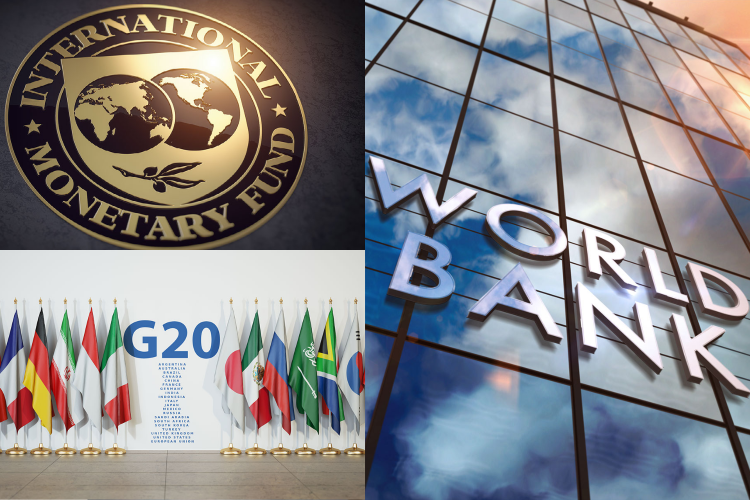“Hundreds of millions of jobs have been lost in the pandemic, and many more informal workers have had their livelihoods ruined. Creating jobs is at the heart of resurrecting the global economy, providing financial security for households and building the resilience that is required during this pandemic and in the future,” said ITUC General Secretary Sharan Burrow.
“Employment is at the centre of meeting the global challenges brought by the pandemic and the urgent need for climate action. Finance ministers and the international financial institutions (IFIs) must get the settings right to make this possible. Any retreat to austerity would be catastrophic today and would deprive coming generations of a future,” added Sharan Burrow.
Key steps to recovery
The statement to the meetings released by the ITUC and Global Unions sets out a series of key steps to meet this objective:
- • Special drawing rights: The International Monetary and Finance Committee endorsed these rights to provide liquidity and free up resources for vaccinations, investments for jobs, and other urgent needs. A $650 billion issuance has support from the IMF Board of Directors and G20 finance ministers.
- Debt relief and cancellations: Greater multilateral debt relief is needed, including cancellation of repayments to the World Bank and expansion of IMF cancellation to cover lower-middle-income countries. The G20 ministers should amend the Common Framework on debt treatment to enable this. Inadequate re-negotiations will create problems later.
- Social protection: Support for the launch of a global social protection fund is needed to help the poorest countries build universal social protection, which is crucial to livelihoods and to public health.
- Reform of the IMF: To ensure that the IMF contributes to a resilient recovery, there needs to be alignment of social spending floors in loans with ILO standards, and upgrading procedures on addressing inequality from guidance to a required procedure.
Failed ideology
The global union bodies are also calling for the end of the World Bank’s ideological ‘Doing Business’ report. Countries such as the Republic of Georgia are still repairing the damage done by the deeply flawed labour indicator, more than ten years after it was suspended. Today, Doing Business still pushes lower corporate taxes and employer contributions and was suspended last year for data manipulation.
With the World Bank acknowledging that it is facing challenges implementing its labour safeguard, which protects workers on loan projects, cooperation with trade unions should be deepened. The Bank and its private sector arm, the International Finance Corporation, should publish annual occupational health and safety information including the number of workers killed on projects.
On Myanmar, the World Bank Group has announced a loan freeze. For loan money disbursed before the coup, the IFIs should identify any links to military-owned companies, violations of human and worker rights, or misuse of funds. If any of this occurs, immediate repayment must be demanded.
Unequal recovery
Sharan Burrow said: “The IMF forecasts 6% world economic growth in 2021, led by US stimulus and improvements in advanced economies. But it notes that the recovery will increase inequality. In developing economies, per capita income losses in 2020-22 are 9% of GDP higher than advanced economies.
“Within countries, job losses have been worse for women, young people, and informal workers, as well as workers in sectors already threatened by automation. The current recommendations of the IMF are welcomed, including progressive and corporate taxation, continuation of crisis response spending, including job retention, and looking ahead to using training, hiring incentives, and job matching to restore employment.
“However, full employment in a more inclusive post-pandemic global economy will not be achieved if the IMF and the World Bank advocate for weakening worker protections, suppressing wages, and financial or corporate deregulation in the name of job creation. The focus should remain on positive measures for living standards and quality jobs. Our report charts a path toward reforming the IMF and its lending.”


